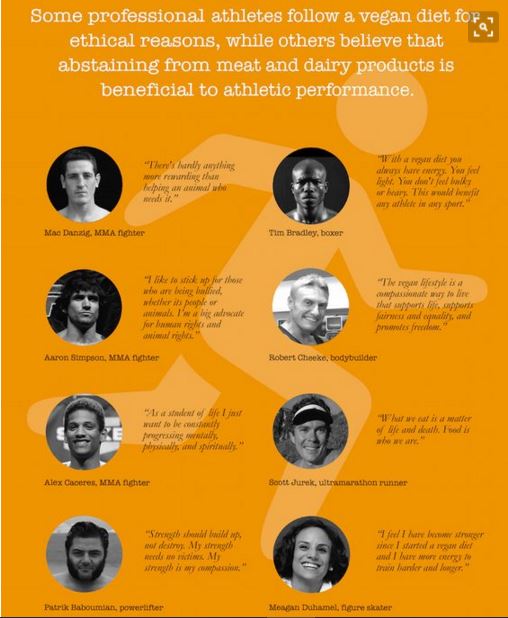veg·an What is veganism?
/ˈvēɡən/ Are there benefits?
noun Why did I choose this life-style experiment?
- a person who does not eat or use animal products.
What is Veganism?

Most people seem to have an idea of what veganism is now days. But for anyone who is scratching their head at the name of this trending life-style, I'll fill you in. According to The Vegan Society, "there's a version of veganism to suit everyone. Yet one thing in common is a plant-based diet avoiding all animal foods such as meat (including fish, shellfish, and insects), dairy, eggs, and
honey - as well as products like leather and anything tested on animals." Vegans and vegetarians are similar in that neither eat meat, but a vegan also abstains from foods containing any animal product - meaning no cheese, milk, honey, ice cream, eggs, etc. Some practicing vegans (I call these people the "Hard-Core Vegans") also avoid clothing and personal use items that come from animals (leather, wool) or were tested on animals (makeup, face wash).
Are There Benefits to a Vegan Diet?
After telling my friends and family that I was going to try going vegan for a month they all thought I was crazy. After getting over the initial shock of "You can't have any cheese!" and "A whole month without ice cream!" the next question is "Why?" How can a vegan diet be healthy?
In a way, a vegan diet can be more creative or exotic than a "normal" diet. In order to get all the necessary nutrients, someone following a vegan diet needs to delve into foods many people don't eat on a regular basis. Instead of just being the obligatory side dish, fruits and vegetables are the solid base of a vegan diet. Protein can be found in beans, lentils, tofu, peanut butter, and soy milk as well as other foods. Calcium, believe it or not, is in broccoli, almonds, collard greens, soybeans, mustard greens, and kale. Mom really knows what she's talking about when she says "eat your green veggies!". To get Iron, you only need to look as far as cooking up lentils, soybeans, kidney beans, chickpeas, or lima beans. The only nutrient that can't be found anywhere in a vegan diet is vitamin B12 (a vital vitamin that helps the nervous system function) because it is only found in animal products.

So, the benefits of a vegan diet. Well, I could turn into an animal rights activist and start spouting "meat is murder". But then I'd have to admit to being quite the serial killer. Of course there are ethical implications with the meat industry and the treatment of animals in the food industry in general, but I'm not going to shame anyone for liking meat, cheese, or ice cream. (Because I'll be honest; I really like cheese and ice cream, and meat is pretty good too.) However, there are personal benefits to going vegan, mainly health benefits.
Many studies have linked the consumption of meats and animal fat (especially red meats) to a heightened risk of developing cardiovascular disease, cancer, diabetes, hypertension, rheumatoid arthritis, and other chronic diseases. A vegan diet, however, is full of grains, vegetables, fruits, and legumes. all of which contain little to no cholesterol. So, eating vegan is extremely healthy, and good for your heart. Some people claim that eating vegan also gives them more energy, makes their skin look better, and helps them lose (and keep off) weight, but the validity of these claims may (probably do) vary from person to person depending on who you ask.
Why Choose Veganism for a Life-Style Experiment?
It shouldn't come as any surprise that America tops the charts in obesity rates. A little over 1/3 of American adults are considered obese. Now, I know that I am not obese, but I certainly don't consider my eating habits to be very healthy. I very rarely (basically never) look at the ingredients of what I eat. And most people don't. But I've come to realize that I absent mindedly eat snacks that have absolutely no nutritional value, that don't fill me up, and that make me crave more of the same thing. I know I'm not alone in having poor eating habits, and it's not something to be ashamed of, just something to work on. But my thoughts on going vegan are as follows: If I have to look at what is in my food for a whole month I will have a better grasp on what I'm putting into my body. Because let's face it, there's going to be a bit of research to figure out what ingredients go into something as simple as microwave popcorn (one of my all-time favorite snacks) let alone an entire month's worth of meals. So while I'm not so focused on animal rights (sorry, I guess I'm a little too self-centered), I hope to become aware of what is in the foods people (myself included) eat on a daily basis without a second thought and use that to shape a better, healthier way of eating (and snacking) in the future.

No comments:
Post a Comment